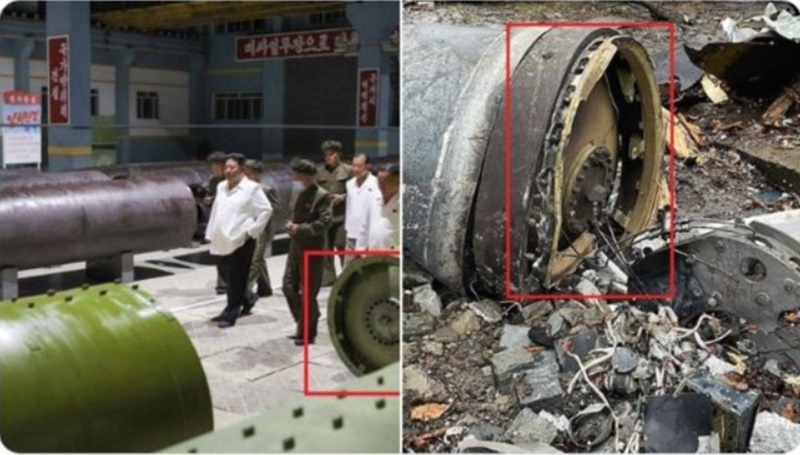Kyiv Post, a Ukrainian media, reported that North Korean soldiers were killed in a Ukrainian missile attack targeting Russian-occupied territories, revealing the close military relationship between North Korea and Russia.
As the war drags on, some are speculating whether North Korea’s dispatch of troops, following its provision of weapons, is becoming more concrete.
According to the Kyiv Post on October 4 (local time), six North Korean soldiers were killed in a Ukrainian missile strike the previous day (October 3).
The attack occurred in a Russian-occupied area near Donetsk in eastern Ukraine, where around 20 people were killed, including North Korean soldiers. The Kyiv Post added that, in addition to the deaths, more than three North Korean soldiers were injured.
A pro-Russian group known as “Kremlin Secrets” also shared similar information. In a Telegram message posted the same day, Kremlin Secrets stated, “A missile attack occurred at a testing site where North Korean officers were present as allied forces.” The message further reported that “among the 20 killed, six were North Korean officers, and three injured North Korean soldiers were transferred to Moscow.”

This is the first time that news of North Korean soldiers’ deaths in the Russia-Ukraine war has surfaced. Speculation about North Korean troop deployment, which began following the signing of a “Comprehensive Strategic Partnership Treaty” between North Korea and Russia in June, seems to have been confirmed. Article 4 of the treaty stipulates that if one of the two countries is invaded and enters a state of war, the other will provide military support in accordance with Article 51 of the UN Charter and its domestic laws.
While the treaty has not yet been officially ratified, the restoration of the military alliance between the two countries suggests that there is now a basis for formal troop deployment from North Korea. North Korea has already provided Russia with millions of 122mm and 152mm shells, as well as ballistic missiles, including the KN-23 (North Korea’s version of the Iskander) and KN-24 (North Korea’s version of the ATACMS).
The South Korean government has not issued a specific statement regarding these reports but is closely monitoring the situation. In an interview with Japan’s Yomiuri Shimbun in July, Shin Won-sik, then Minister of National Defense, was asked whether North Korean troops had been deployed to Russian-occupied areas of Ukraine. He responded, “It can be considered one option,” but noted that “they do not appear to be combat units.”
Some within military circles believe that North Korea may have deployed non-combat personnel in response to Russia’s repeated requests, primarily to provide logistical support for operating exported weapons. There is also speculation that the North Korean soldiers killed in the recent missile attack were conducting demonstration exercises related to weapons exports when the strike occurred.
There are also unconfirmed reports that North Korean engineering units were deployed to help with warzone reconstruction, but intelligence authorities are taking a cautious approach.
A government official commented, “As the Russia-Ukraine war reaches a stalemate, military cooperation between North Korea and Russia may deepen. We are considering all possibilities, including the deployment of combat units.”
BY LEE KEUN-PYUNG lee.keunpyung@joongang.co.kr




